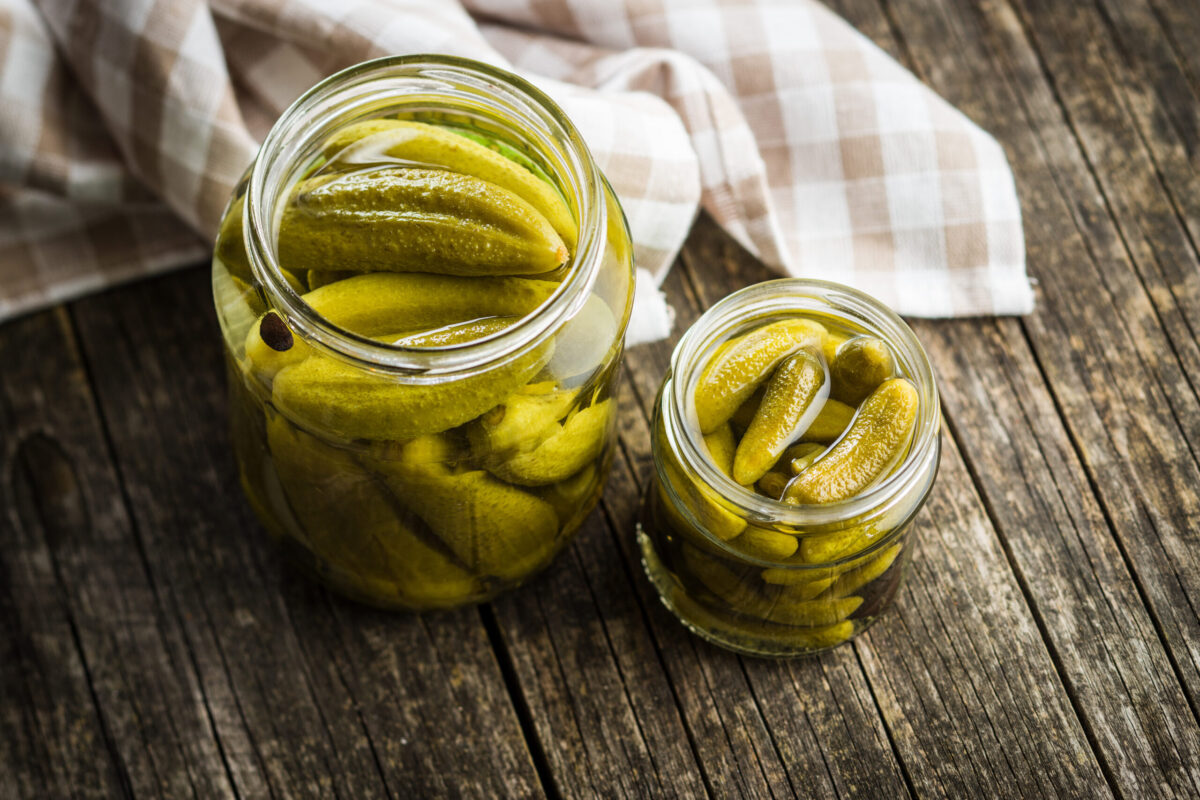Pickles get a bad rap as a healthy food due to their high salt content – and with good reason. A large dill pickle has more than two-thirds (1623 mg) of the maximum recommended daily sodium consumption. However, pickles also have health benefits that are often overlooked.
“If you have heart disease or high blood pressure, pickles shouldn’t be your go-to snack,” says Erica Fleming, a registered dietitian at BlueCross BlueShield of Tennessee. “However, because pickles are made from cucumbers, they are a low-calorie and low-fat food, along with other benefits. And some pickles are healthier than others, depending on how they are made.”
All pickles are a source of:
- Fiber – the fiber in pickles helps move waste products through your system and helps keep your blood sugar and blood cholesterol levels in check and helping you feel full, so you don’t overeat.
- Vitamin A – pickles are a source of beta carotene, an antioxidant that your body converts into Vitamin A, which helps keep your immune system strong. It’s also good for keeping your skin and eyes healthy.
- Vitamin K – beneficial to heart health.
- Antioxidants – protects cells from diseases.
“Just as you need to monitor your sodium intake with dill pickles, you should also be wary of the sugar content in sweet pickles,” Fleming says. “Health wise, the best pickles for you are fermented pickles.”
What are fermented pickles?
Erica Fleming: While most pickles are preserved in vinegar, fermented pickles are preserved in a brine of salt and water. During fermentation, a chemical reaction occurs between the natural sugar in the cucumber and the bacteria, and that produces probiotics.
Probiotics are tiny living organisms that help your digestive system function normally. Eating foods with probiotics, helps you maintain healthy levels of the “good” bacteria that live in your gut. They help your body:
- Keep “bad” bacteria from making you sick
- Absorb nutrients
- Create vitamins
- Break down and absorb medications
How to give fermented pickles a try
Erica Fleming: I recommend buying some fermented pickles to see if you enjoy the flavor and benefits. Be aware that fermented pickles are sometimes difficult to find in the grocery store. They won’t be on the pickle aisle. Those varieties are preserved with vinegar. And, not all of the pickles in the refrigerated section are fermented. You’ll need to read the label carefully and look for a specific reference to “fermented” or “probiotic.”
You can also make your own fermented pickles at home. It’s important, however, to follow safety recommendations to prevent unhealthy or harmful bacteria from growing and interrupting the fermentation process. You also want to use the appropriate containers, covers, and weights.
How to make your own fermented pickles
This recipe is from Simply Recipes:
For each gallon in a container, you’ll need:
- 2 lbs. of small pickling cucumbers
- 4 cups of water
- 20 grams of kosher or sea salt
- 5 cloves of garlic, smashed
- Optional: 10 peppercorns, 1-2 dried chilis, 1-2 heads of fresh dillheads of fresh dill weed or 2 tbsp dill seed
Equipment needed: 1 (2-3 quart) glass jar
Directions:
- Make the brine by bringing the salt and water to a boil. Let it cool to room temperature.
- Add seasonings to the jar.
- Prep cucumbers – trim to fit jar and remove blemishes.
- Pack the cucumbers into jars; leave 1 inch between tops of cucumbers and lid.
- Add the brine. Label and date.
- Wait, monitor and taste. You’ll likely see some change in 24 hours. They will likely be done in 3-4 days.
- Store in refrigerator for up to 1 month.
More from Erica Fleming on WellTuned.
Get more information about specific health terms, topics and conditions to better manage your health on bcbst.com. BlueCross BlueShield of Tennessee members can access wellness-related discounts on fitness products, gym memberships, healthy eating and more through Blue365®. BCBST members can also find tools and resources to help improve health and well-being by logging into BlueAccess and going to the Managing Your Health tab.


